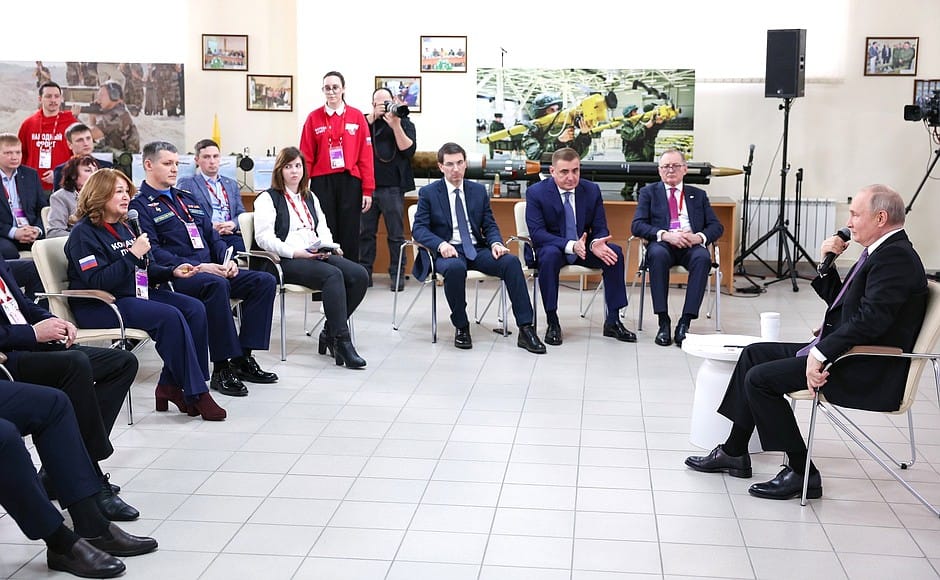Russian President Vladimir Putin paid a visit to Tula, south of Moscow, one of the primary centers for the defense industry, in a forum entitled “Everything for Victory!” he noted that this was the 81st anniversary of the victory at Stalingrad in 1942, a turning point of World War II. The forum was organized by the All-Russian Popular Front, which united 600 representatives of various professions from all regions of Russia: workers, engineers from defense enterprises and other industries, science workers, public organizations, doctors, war correspondents, and volunteers in the war effort.
In his plenary speech, Putin underlined the importance of the defense industry in protecting the country. The Russian defense industry demonstrates a very good pace and quality of work: “In almost the entire range, both quality and quantity are provided at very good, high rates that the country needs,” he said. The production of tanks has increased fivefold since the beginning of the special military operation. The production of body armor for the soldiers has increased tenfold and the production of combat uniforms by 150%.
“Our 6,000 defense industry enterprises employ 3.5 million people.” Putin said. Over the last year and a half, Russia has added 520,000 workers to the defense industry. Fulfillment of state orders is now at almost 100% and Russia has succeeded to 95% in the upgrading of its strategic nuclear and naval forces. Putin also instituted today a new award for the Order for Valiant Labor, reminding people, as he noted, of the old Soviet reward of the same character, Order of the Red Banner of Labor. The award went to a Tula-based company, SPLAV, he announced. The radio-electronic base was still something that was lacking and more work had to be done to meet the needs of the battlefield.
“In order to be successful on the battlefield today,” he said, “you need to quickly and adequately respond to events occurring on the battlefield.” Success is achieved, he went on, by those who not only quickly react to the means used by the enemy, but also “make their own more effective means. Whoever does it all faster wins.”






